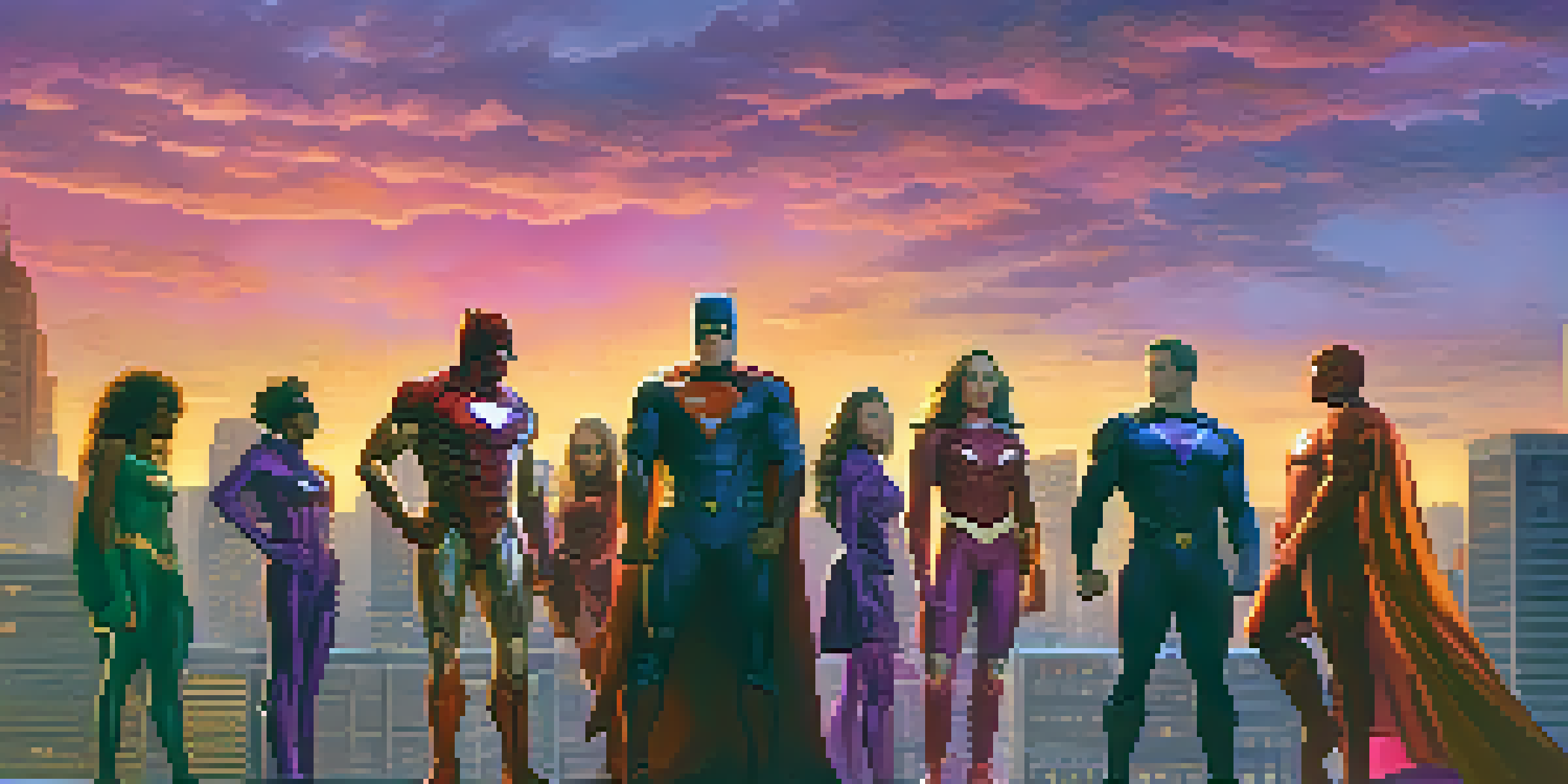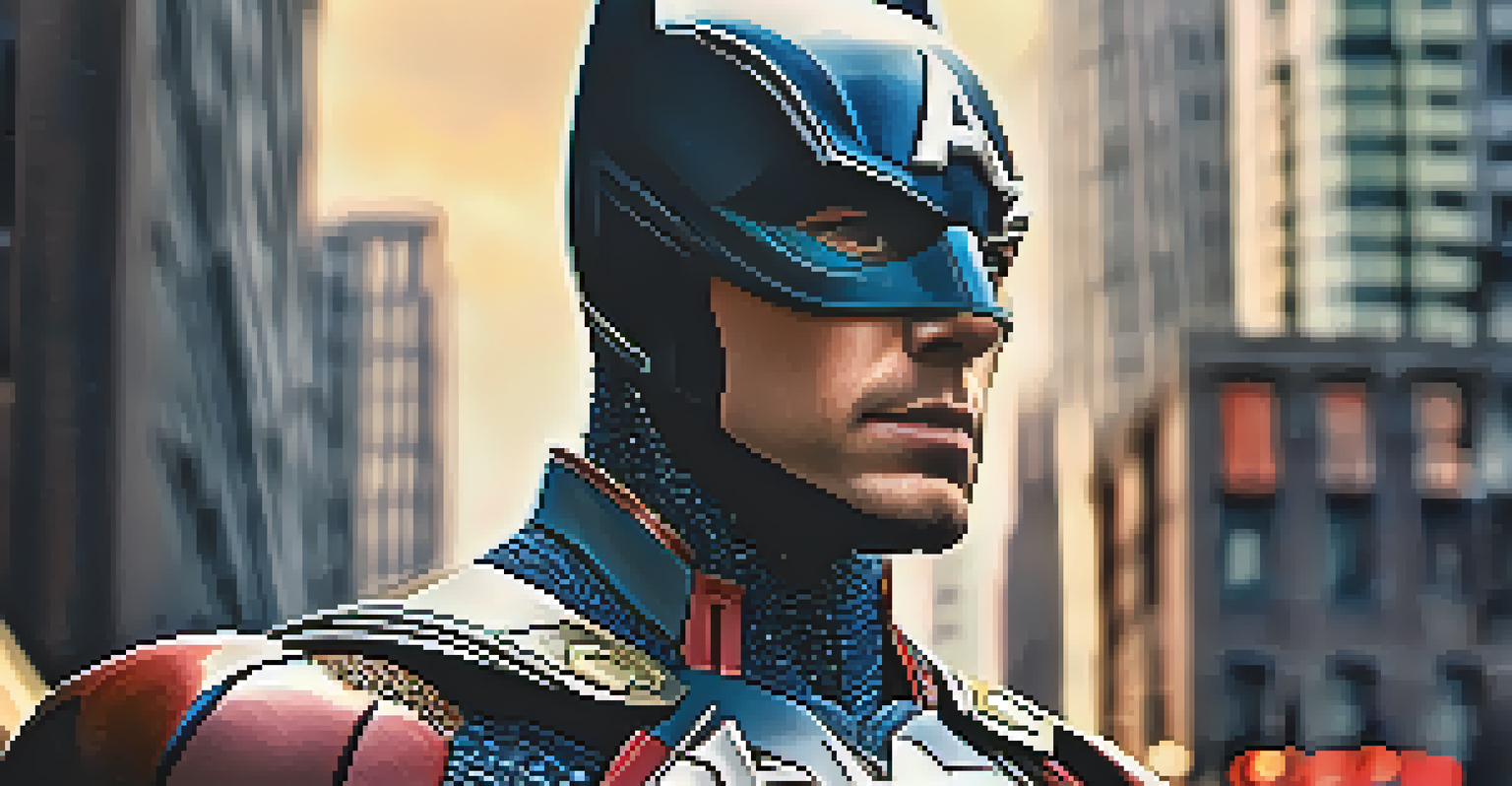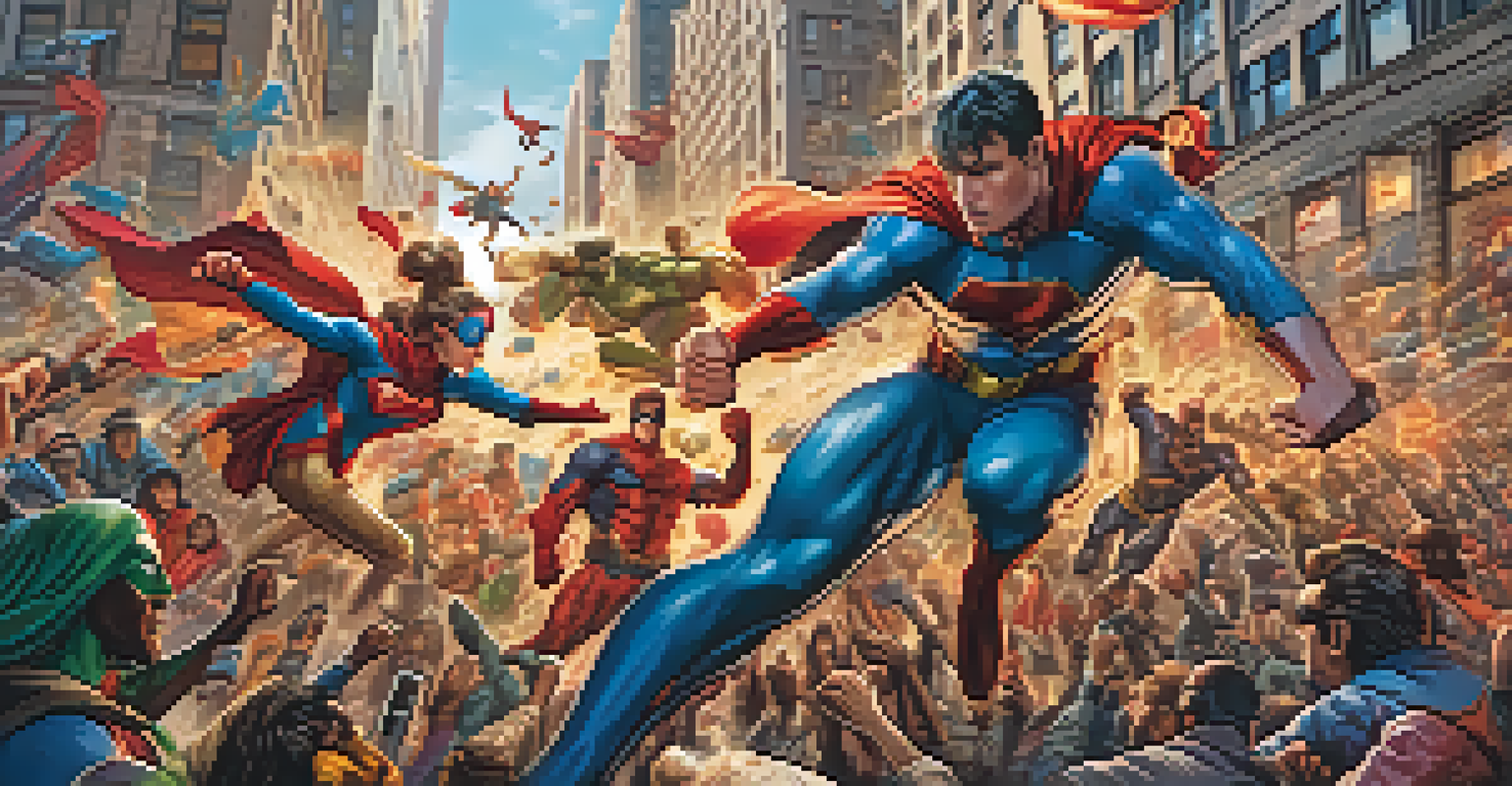The Marvel Cinematic Universe: A Case Study in Success

The Birth of a Cinematic Universe: Setting the Stage
The Marvel Cinematic Universe (MCU) began with 'Iron Man' in 2008, marking a pivotal moment in filmmaking. This was not just another superhero movie; it was the start of a grand interconnected narrative that would captivate audiences for over a decade. Marvel Studios, under Kevin Feige's leadership, took a bold step by intertwining various character stories, which was a novel concept at the time.
The Marvel Cinematic Universe has redefined how we think about storytelling in film, creating a tapestry of interconnected narratives that engage audiences like never before.
By establishing a shared universe, Marvel created a unique viewing experience. Fans weren't just watching standalone films; they were part of a larger saga that connected across various titles. This strategy encouraged viewers to see every installment, fostering a sense of community and anticipation for future releases.
The success of this model has inspired other franchises, proving that the interconnected storytelling approach resonates with audiences. It highlighted the importance of long-term planning in cinematic storytelling, which many studios are now adopting to replicate Marvel's success.
Character Development: The Heart of the MCU
One of the MCU's standout features is its rich character development, which draws viewers into the story. From Tony Stark's transformation from a self-absorbed industrialist to a selfless hero, to the evolution of characters like Thor and Black Widow, audiences see relatable arcs that mirror real-life challenges. This depth allows fans to form emotional connections with the characters.

Marvel's writers have skillfully woven humor, trauma, and growth into their narratives. Each character faces personal struggles and triumphs, making them more than just superheroes; they are people with flaws and complexities. This relatability is crucial, as it helps the audience invest emotionally in their journeys.
Interconnected Storytelling Success
The Marvel Cinematic Universe (MCU) revolutionized filmmaking with its interconnected narratives, creating a shared universe that captivates audiences.
Moreover, diverse representation across characters has expanded the MCU's appeal. By introducing characters from various backgrounds and stories, Marvel has created a more inclusive universe that resonates with a broader audience.
Innovative Marketing Strategies: Captivating Audiences
Marvel's marketing strategies have been as innovative as their films. They effectively use social media platforms to build buzz and engage with fans, creating a two-way dialogue that fosters loyalty. From sneak peeks to interactive content, Marvel keeps audiences excited and invested long before a film's release.
Character development is at the heart of any great story; it's what makes audiences care and keeps them coming back for more.
They’ve also mastered the art of trailers. With expertly crafted teasers that hint at plotlines without revealing too much, Marvel generates anticipation and speculation among fans. This tactic not only keeps the excitement alive but also encourages discussions, further enhancing community engagement.
Additionally, Marvel's strategic release schedules, often timing films to coincide with significant dates or events, help maximize visibility. By maintaining a steady stream of releases, they keep fans on the edge of their seats, ensuring that the MCU remains a talking point in pop culture.
Cultural Impact: Shaping Modern Entertainment
The MCU has not only entertained but also influenced modern culture. Its characters and quotes have permeated everyday life, becoming part of the global lexicon. Phrases like 'I am Iron Man' resonate beyond the screen, highlighting the franchise's deep cultural footprint.
Moreover, the MCU has sparked discussions around important themes such as heroism, responsibility, and sacrifice. Films like 'Black Panther' and 'Captain Marvel' have opened dialogues about race and gender, demonstrating that superhero stories can reflect and influence societal issues.
Character Depth Drives Engagement
Rich character development allows audiences to form emotional connections, making the heroes relatable and their journeys compelling.
This cultural relevance has empowered fans to engage with the content on a deeper level, fostering a sense of belonging and shared identity among diverse audiences. The MCU has become a platform that showcases not just entertainment, but also the potential for storytelling to inspire change.
Critical Reception: Balancing Popularity and Quality
While the MCU is a box office juggernaut, it has faced its share of criticism. Some argue that the franchise prioritizes spectacle over substance, leading to a formulaic approach that can feel repetitive. However, despite these critiques, Marvel has managed to deliver critically acclaimed films alongside crowd-pleasers.
Films like 'Black Panther' and 'Avengers: Endgame' received praise not only for their entertainment value but also for their artistic direction and storytelling depth. This balance of commercial success and critical acclaim is a testament to Marvel's commitment to quality, ensuring that they cater to both fans and critics alike.
The MCU continuously evolves, experimenting with different genres and themes, which helps to keep the content fresh. This adaptability is crucial in maintaining viewer interest and proving that superhero films can be both popular and artistically valuable.
Future of the MCU: New Directions and Challenges
As the MCU moves into its next phase, it faces both exciting opportunities and significant challenges. With new characters introduced in series and films, Marvel must maintain the intricate connections that have defined its success while keeping the storytelling fresh and engaging. This balancing act will be essential in keeping long-time fans satisfied while attracting new viewers.
The rise of streaming platforms has also changed the landscape of content consumption. Marvel's Disney+ series have expanded the universe while allowing for deeper character exploration. However, this shift means that Marvel has to compete with a wider array of content, making it crucial to deliver high-quality stories across all formats.
Cultural Influence Beyond Entertainment
The MCU has shaped modern culture by addressing significant themes and becoming a platform for important societal discussions.
Ultimately, the MCU's ability to innovate and adapt will determine its future success. As they continue to explore new narratives and themes, the franchise has the potential to inspire and entertain for many more years to come.
Lessons from the MCU: Insights for Other Franchises
The success of the MCU offers valuable lessons for other franchises looking to make an impact. First and foremost, the importance of a unified vision is paramount. Having a clear direction allows for coherent storytelling that resonates with audiences, creating a sense of anticipation for future projects.
Moreover, investment in character development cannot be overstated. Audiences are drawn to characters they can relate to, so taking the time to craft intricate backstories and arcs pays off in the long run. This connection is what ultimately keeps viewers coming back for more.

Lastly, engaging with fans is crucial. The MCU's success is partly due to its ability to cultivate a loyal fan base through effective marketing and community involvement. By listening to audiences and valuing their input, franchises can foster a sense of ownership that enhances viewer loyalty.